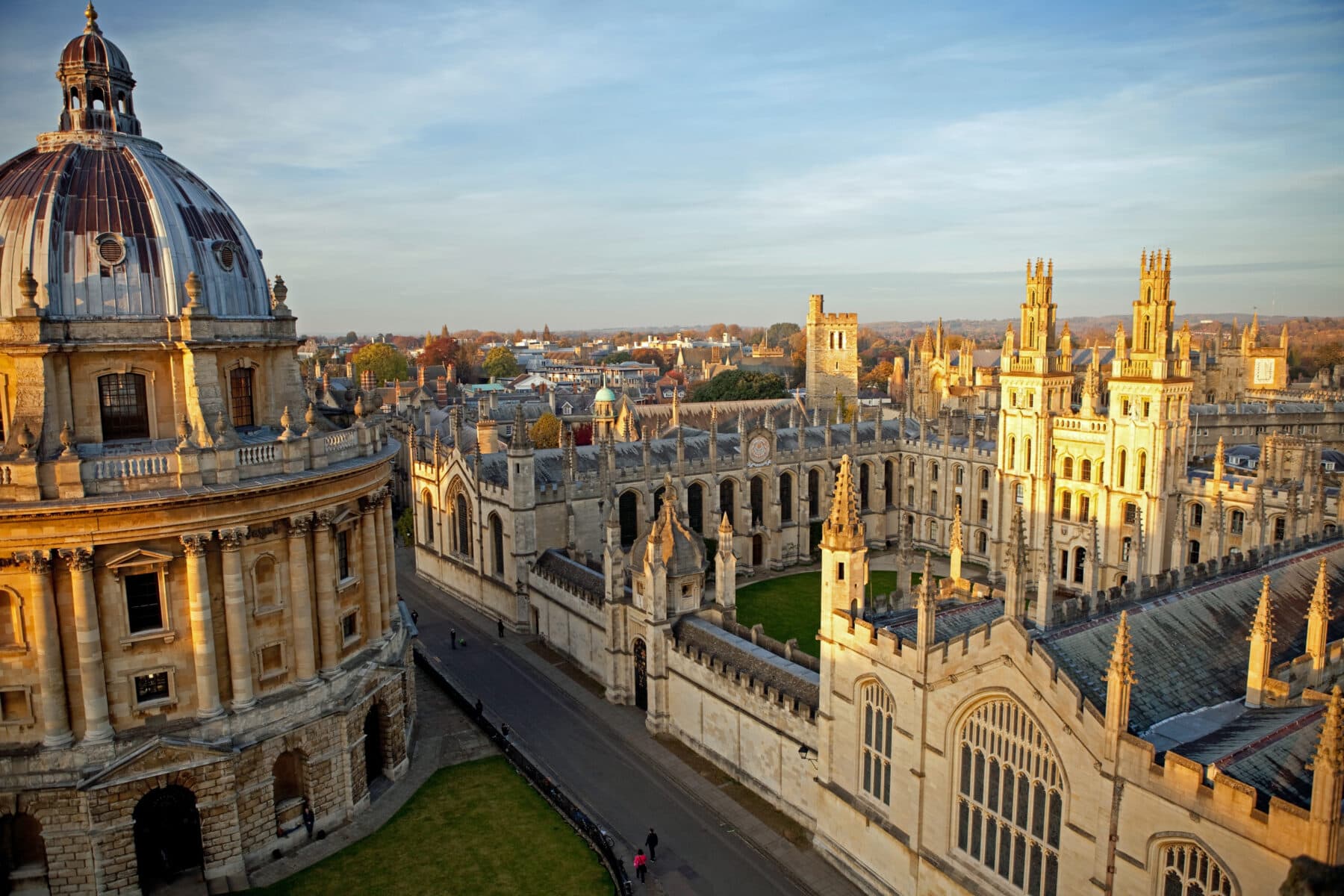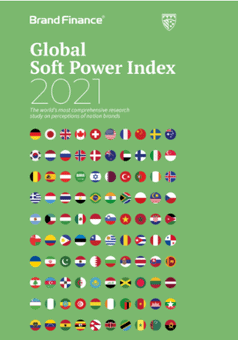This article was originally published in the Global Soft Power Index 2021.
In 2020, the inaugural Global Soft Power Index and report provided unprecedented, detailed insights into how Soft Power is measured and built.

University of Oxford
This year’s Index and report provides even more in-depth information and analysis, with an increase in survey numbers to 75,000 people from the general public and over 750 specialists from over 100 nations. As last year, measures of soft power are expressed under three main headings – Familiarity, Reputation, and Influence – and based on the seven Soft Power ‘Pillars’ of Business & Trade; Governance; International Relations; Culture & Heritage; Media & Communication; Education & Science; and People & Values.
In 2021, however, there are some additional questions and modifications, including a new statement about future growth potential and a survey of public opinion on nations’ handling of the COVID-19 pandemic.
This extra dimension has had a substantial impact on the rankings. Germany is now top of the Global Soft Power Index 2021 and New Zealand first among the general public for the COVID-19 questions, while also posting the fastest growth in the Index. In contrast, the US is the fastest falling nation in the overall Index, from first last year to sixth this year, and occupies the lowest place (105th) in the COVID-19 metric.
We have always known that Soft Power is somewhat fragile and subject to rapid change, as these ranking fluctuations show. And perception, which can of course be based on fact or fiction, is a very real part of what gives a nation Soft Power. Soft power strategies help enormously to create positive, lasting perceptions and thus to ensure a nation’s best possible competitive positioning. The snapshot provided by this survey is a useful tool for both competitive analysis and policy enhancement.
A key point revealed in the data and discussed by expert contributors is that national leaders can have a major impact on perceptions. This is illustrated by the charisma of New Zealand Prime Minister Jacinda Arden, the steady, trusted hand of German Chancellor Angela Merkel, and the negativity and disunity generated by former US President Donald Trump. The commentary demonstrates the strong link between personal leadership brand images and those of the national brands that leaders represent, reinforcing the fact that it is not just policies that have an influence on Soft Power perceptions, but individual personality brand strength as well.
40 new countries are included in this year’s Index and they are mainly smaller by population. Iceland (30th) and Luxembourg (32nd) are the highest ranked of these. Small size is generally no barrier to occupying a strong position in the Soft Power ranking, however: Switzerland, for example, ranked fifth, has well-entrenched, positive overall brand perceptions, and it has always worked hard on building its national brand image, mainly through Soft Power.
Indeed, smaller countries can make significant gains in the rankings. For example, the UAE ranks first in the Middle East and 17th globally in the overall Index. It is perceived to have handled the pandemic much better than its regional competitors and is gaining more Soft Power traction with on-going policies and planned activities such as the successful Emirates Mars Mission and other international partnerships.

Some observers have suggested that small countries should find it easier to develop a focused Soft Power strategy that works. The advantage that smaller countries have appears to be in the areas of agility, speed, and responsiveness to dynamic situations.
The Index reveals that many smaller countries, especially those with strong reputations for good governance, tend to feature strongly on pandemic management with several of them posting high net scores. However, while they do have small populations, can achieve fast buy-in from internal audiences, and are more nimble than many large nations, they often lack the deeply held perception base of Familiarity, Reputation and Influence that larger countries have built over time. Their nation branding can thus be improved.
So how can nations strategically plan and implement Soft Power strategies? Should countries work on well-articulated and detailed plans and how would these fit in the fast-changing world of identity and image management? Given that nations have to deliver Soft Power force in dynamic short-term situations, how far is Soft Power reactive as opposed to proactive in nature? The evidence from the report suggests that a well-rounded soft power strategy is necessary. Countries need to perform well in crisis management situations while simultaneously developing future Soft Power plans for the medium and long term.
It is now generally accepted that Soft Power plays a huge role in the building of nation brand identity, image, and value. Do nations need to have formal structures to monitor Soft Power initiatives? Many countries already have in place institutional frameworks for brand development in the form of national branding task forces and councils. These are natural centres for Soft Power strategic planning and monitoring initiatives, particularly as they contribute heavily towards the development of a nation’s identity, image, attractiveness, influence, and value.
South Korea has employed this approach, integrating Soft Power into its nation branding strategy portfolio overseen by a Presidential Council on Nation Branding. South Korea is ranked 11th in the Global Soft Power Index 2021. Switzerland too has a well-defined structure, with Presence Switzerland responsible for developing the image of Switzerland and implementing the strategy of the Federal Council on Switzerland’s communication abroad. This is another good example of a state body responsible for soft power linking directly to nation branding.
It follows from this that for nation branding to be successful there is a need to integrate all research studies that analyse financial brand valuations, Soft Power impact, competitiveness, happiness, and other brand-related measures they have undertaken. Outputs from task forces working on sector-specific projects as addressed through the seven Soft Power pillars should also be included in a nation brand master plan. Many countries use a variety of research measures and data separately but do not combine them into a coherent whole because they do not have a structure in place ensuring synergy across all activities and sectors. The Index and Report provides an opportunity for nations such as these to move to a more advanced stage by taking a deep dive via in-depth tailored research on the strengths and weaknesses that underlie their current position.
The Global Soft Power Index and report 2021 will be a valuable resource for governments, public and private sector organisations, and practitioners responsible for the development of national identity, economic and social policies, and international relationships.

